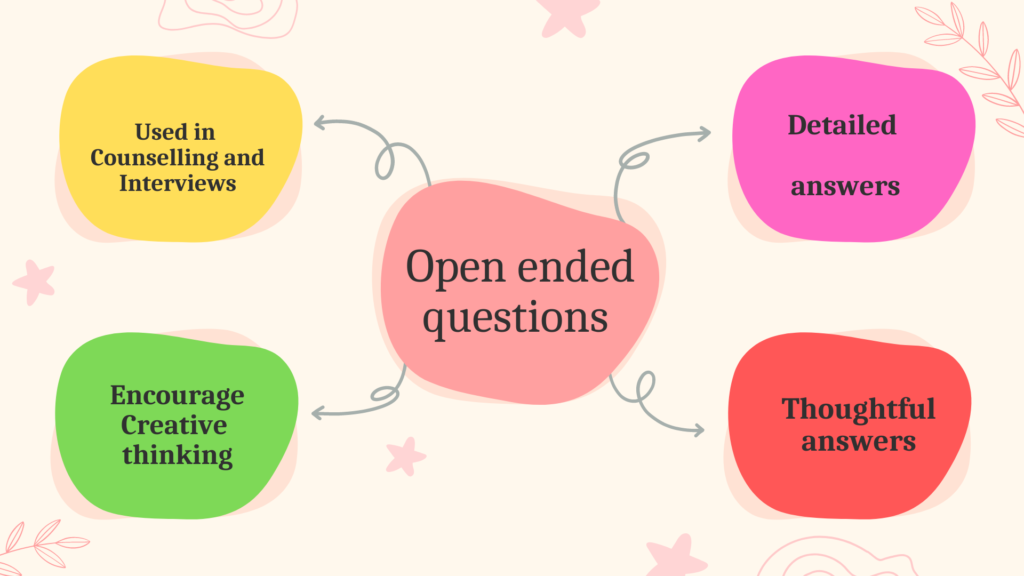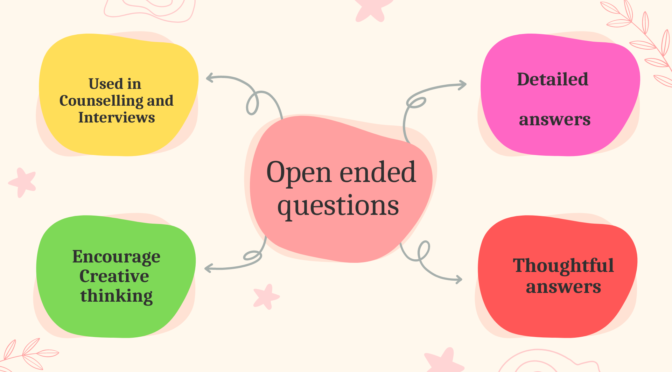Open-ended questions are questions that do not have a specific answer or a narrow range of acceptable answers. They are designed to elicit more detailed, complex, and thoughtful responses from the person being asked, rather than just a simple “yes” or “no” answer.
They are designed to encourage a more detailed and thoughtful response, rather than just a simple “yes” or “no” answer. Open-ended questions often begin with words like “what,” “how,” or “why,” and require the person being asked to provide a more comprehensive answer that includes their thoughts, feelings, opinions, or experiences.
They are used in a variety of settings where in-depth and thoughtful responses are desired. Here are some examples:
- Education: Teachers use it to encourage critical thinking, deeper understanding, and discussion. It can prompt students to think creatively and engage in meaningful dialogue. They can be used in any subject area, including language arts, social studies, math, and science.
- Counseling and therapy: Therapists use It to help clients explore their thoughts, feelings, and behaviors in greater depth. It can encourage clients to reflect on their experiences, gain insight into their emotions, and identify areas for growth and change.
- Market research: Researchers use open-ended questions to gather detailed and nuanced information from participants. It can help researchers gain a deeper understanding of participants’ opinions, attitudes, and experiences.
- Interviews: It are often used in job interviews to allow candidates to provide more detailed and meaningful responses. They can help employers gain a better understanding of a candidate’s qualifications, experience, and fit for the role.
- Conflict resolution: It can be used in conflict resolution to encourage parties to explore their perspectives, understand each other’s needs, and work towards a mutually beneficial solution.
Also Read : Inductive and Deductive Approach
Overall, open-ended questions are used in settings where a more detailed and nuanced response is desired. They encourage thoughtful and creative thinking, facilitate communication, and promote meaningful dialogue.


